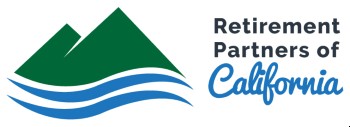 Q: Hey Erick, we are looking forward to seeing the U.S. Department of Labor’s (DOL’s)efforts to help savers locate left-behind or forgotten 401(k) accounts by creating a national search database. Are there any statistics that shed light on the magnitude of this problem in the retirement plans industry? – Annie in Accounting.
Q: Hey Erick, we are looking forward to seeing the U.S. Department of Labor’s (DOL’s)efforts to help savers locate left-behind or forgotten 401(k) accounts by creating a national search database. Are there any statistics that shed light on the magnitude of this problem in the retirement plans industry? – Annie in Accounting.
A: Hi Annie! Many job switchers leave their 401(k) behind to deal with later. The result is that they can end up with a string of 401(k) accounts tied to former employers, each with different fees, asset allocations, and custodians. This is something that I am constantly working on for my clients. Not only can there be fees for the employee but fees for the business too as well as potential liability in participant communication. Remember, those former employees must be given the same communication as your current employees. Yes, even those that are hard to find. You must show effort to provide them the same annual notices, etc.
In an updated version of its 2021 white paper, “The True Cost of Forgotten 401(k) Accounts,” Capitalize found forgotten accounts have grown by 20% in the last two years. As of May 2023, there are an estimated 29.2 million forgotten or left-behind 401(k) accounts in the United States, representing $1.65 trillion in assets. Capitalize research attributes the growth to last year’s “Great Resignation” push and raised rates of job switching. The average account balance of a forgotten 401(k) increased to $56,616 from $55,400, and in aggregate, the assets left behind by job changers now represent close to 25% of the total savings in 401(k) plans.
I do have some strategies to address this issue for my clients so reach out and I’ll share what I’m doing.
Retirement Partners Can Help
Get a plan to help improve your 401k results.
Disclosures, Sources, and Footnotes
RP-865-0823 Tracking #1-05377959
For plan sponsor use only, not for use with participants or the general public. This information is not intended as authoritative guidance or tax or legal advice. You should consult with your attorney or tax advisor for guidance on your specific situation.






